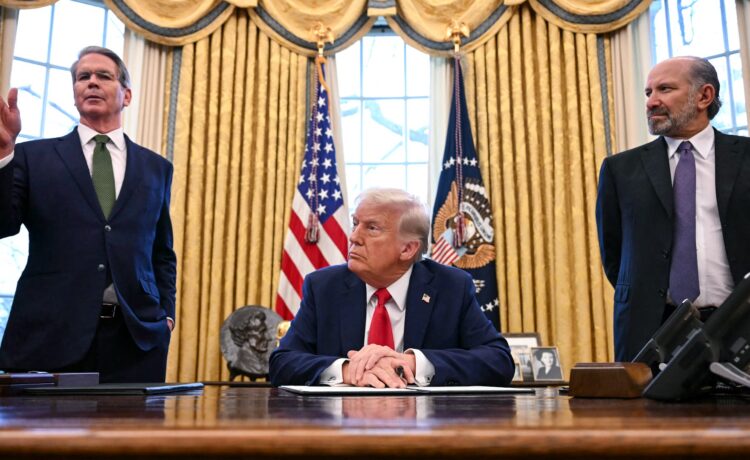President Donald Trump has signed an executive order to create the U.S.’s first sovereign wealth fund, aiming to invest in infrastructure, medical research, and possibly acquire TikTok, as reported by The Wall Street Journal. Treasury Secretary Scott Bessent and Commerce Secretary Howard Lutnick will oversee its development. This move marks a major shift in U.S. economic policy.
Here is everything you need to know about sovereign wealth funds.
What is a sovereign wealth fund?
A sovereign wealth fund (SWF) is a state-owned investment fund that manages a country’s financial assets, typically derived from surplus reserves, natural resource revenues, or trade surpluses, as reported by Reuters. These funds invest in stocks, bonds, real estate, and other assets to generate long-term wealth for national development.
Countries like Norway, China, and the UAE use SWFs to stabilize economies, fund infrastructure, and support public programs. The U.S. has not traditionally had one, making Trump’s proposed SWF a significant shift in economic policy.
How do citizens benefit from a sovereign wealth fund?
Citizens benefit from a sovereign wealth fund (SWF) through economic stability, infrastructure investments, and public programs funded by the fund’s profits. According to Investopedia, many SWFs help reduce taxes, support pensions, improve healthcare, and invest in job-creating projects.
Who controls a sovereign wealth fund?
Sovereign wealth funds (SWFs) are controlled by government-appointed agencies or entities that manage the fund’s investments to serve national interests, such as economic stability and funding public services, according to The Washington Post.
Who funds a Sovereign wealth fund?
A sovereign wealth fund is typically funded through a country’s budget surplus, but the U.S. faces challenges in establishing one due to its ongoing budget deficit, according to Reuters. Additionally, the creation of such a fund would likely require Congressional approval due to the uncertainty surrounding the funding source.
What are the disadvantages of sovereign wealth funds?
Sovereign wealth funds (SWFs) have several disadvantages. They can raise national security concerns if investments target strategic industries. A lack of transparency can make it difficult to assess their financial health, and large investments may distort markets. Additionally, political influence and mismanagement can lead to decisions that don’t prioritize financial returns, potentially jeopardizing the fund’s success.
The sovereign wealth fund and TikTok
A sovereign wealth fund (SWF) could help save TikTok by providing the financial resources needed for a potential acquisition or investment, according to a Washington Post report. If a country’s SWF were to invest in TikTok, it could help alleviate concerns about foreign ownership, especially if the company were facing regulatory hurdles.
The fund’s backing could also strengthen TikTok’s financial stability, allowing it to continue operations and avoid being forced to sell or shut down. This could be particularly relevant if the company were caught in disputes over data privacy or national security concerns.
What country has the largest sovereign wealth fund?
Norway has the largest sovereign wealth fund in the world. The fund, known as the Government Pension Fund Global, is primarily funded by the country’s oil revenues and is used to invest in global equities, bonds, and real estate, as reported by NBC News. Its purpose is to support the Norwegian economy and ensure long-term prosperity.
As of December 2024, the fund reached a record value of 20 trillion Norwegian kroner (approximately $1.8 trillion), according to Reuters.
Diamond Walker is a journalist at The Palm Beach Post, part of the USA TODAY Florida Network. You can reach her at [email protected]. Help support our journalism. Subscribe today





